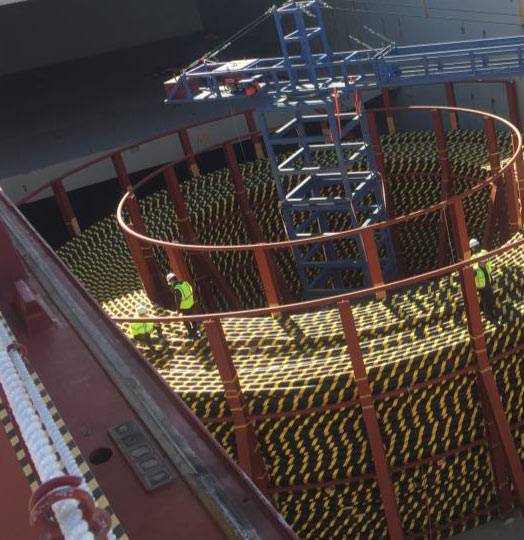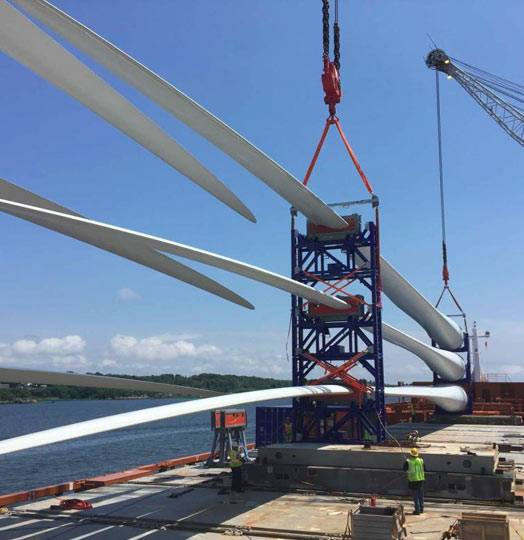Diverse Ecosystem
Our Diverse, Robust Offshore Wind Ecosystem
If you’re looking to be part of America’s offshore wind industry, look to Rhode Island.
In Rhode Island, we’re building more than wind farms; we're building an entire offshore wind industry. From job-training programs to public-private partnerships, to hardworking labor unions, to world-class ports, to hundreds of supply chain providers and blue economy innovators, Rhode Island has all the tools and assets to lead the nation’s clean energy revolution.
Locally based expertise.
- More than 40 global offshore wind supply chain companies – all working out of one building in downtown Providence (CIC Providence).
- More than 70 additional businesses that have the products and services the industry requires.
Thriving deepwater port infrastructure
PORT OF PROVIDENCE
Quick stats:
- Port for Block Island Wind Project
- 115 acre marine terminal
- On-dock rail service
- 6 berths – 3,500 linear feet. No weight restrictions.
- 35 paved acres for lay down storage adjacent to rail line
- Foreign Trade Zone 105
- 2 Liebherr 60 Ton Mobile Harbor cranes
- 1 deck crane barge – 300 ft.
- Bearing capacity is 4,000 PSF [19.5 Tn/m²]
Easy access to:
- Highways (Interstate 195 and Interstate 95)
- Major airports in Rhode Island, Massachusetts and Connecticut

QUONSET BUSINESS PARK
Quick stats:
- Port for Block Island Wind Project
- Deep water port
- Rail, air, road, and sea access
- 3,200 acres
- Foreign Trade Zone 105
- Home to the Atlantic Pioneer, the first US-built crew transfer vessel engineered specifically to service offshore wind projects
- 200+ companies
- 13,000 workers
Easy access to:
- Highways (RI Route 4 and Interstate 95)
- Major airports in Rhode Island, Massachusetts and Connecticut

Hands-on experience at every phase of an offshore wind farm’s life cycle.
- Already supporting the Revolution Wind (RI), South Fork Wind (NY) and Vineyard Wind (MA) offshore wind projects – all already in construction offshore.
- Home to clusters in Scientific Work, Logistics and Transportation, Operations and Maintenance, Precision Manufacturing, and Ports.
Low-cost entry into an interconnected ecosystem.
- Low-cost entry model in place with opportunities to scale.
- Supply chain concierge service to aid developers, tier-1 suppliers, and others in connecting with the right companies for partnerships, with state agencies for permitting needs, and with companies in the wind cluster to provide a deeper solution.
- The RI Commerce program SupplyRI links anchor companies to specific local companies that leverage local supply chain opportunities.
State agencies and companies alike are focused on reaching underserved populations and providing training. - Coordination of DEI initiatives from identifying a new workforce to preparing them (with developer and tier 1 support) for entry into the industry and timed with project needs.
